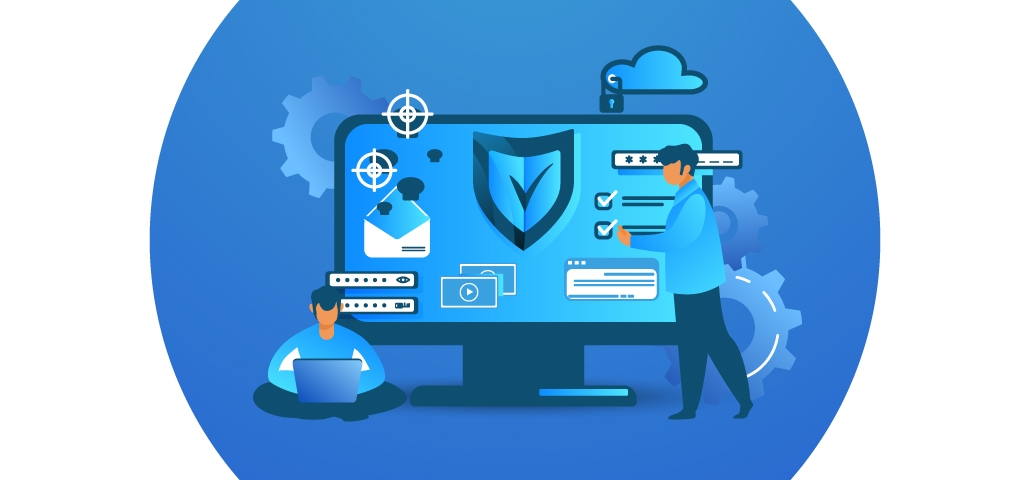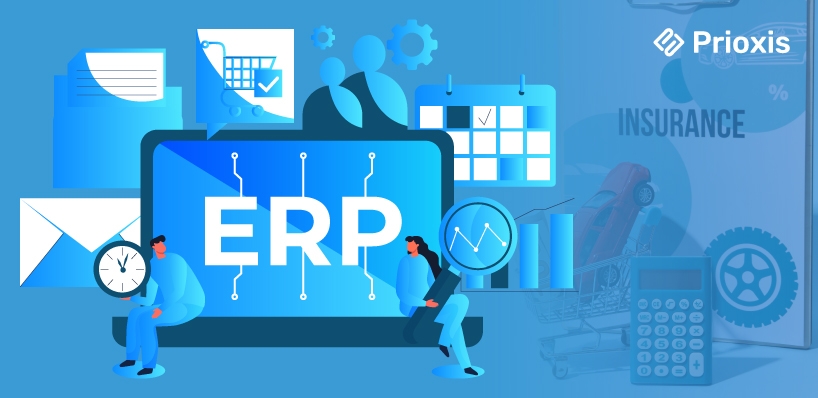
Table of Content
Insurance professionals—whether you're managing claims, dealing with customers, or overseeing financials—you’re likely drowning in paperwork, constantly updating files, and struggling to find information when it matters most. Sound familiar? You’ve probably wondered if there’s a better way to handle all the processes piled on your desk.
Well, that’s where Enterprise Resource Planning (ERP) comes in. ERP isn’t just a fancy term; it’s a game-changing tool that pulls all those scattered processes into one neat system. Imagine getting rid of inefficiencies, accessing real-time data with just a few clicks, and having everything you need, in one place, to help you and your customers.
This article breaks down how ERP can be a transformative addition to your business. We'll cover how it simplifies daily tasks, reduces operating costs, makes compliance smoother, and ultimately allows you to focus more on what matters—growing your business and keeping your customers happy. Let's dive into how ERP can reshape the insurance industry.

ERP, or Enterprise Resource Planning, is essentially a platform that unites all of your core business processes. Think claims, policies, HR, finance, customer interactions—it’s all brought into one central hub. For insurance companies, that means fewer headaches trying to juggle dozens of applications, and more time doing what you do best: serving your clients.
The insurance world is, frankly, drowning in paperwork. There are forms, contracts, claims, policy updates, and regulatory documents. Not to mention, with every new customer comes a mountain of information to organize. That’s where ERP comes to the rescue. It helps you keep track of customer records, manage transactions, and handle compliance—all while reducing the time and effort it takes to complete those tasks.
But don’t just take my word for it—let’s break down exactly how ERP for insurance helps streamline things, reduce costs, and keep you in the clear.
Let’s start with the big one—cutting costs. An ERP combines all your existing systems under one roof, meaning you can kiss those multiple subscription fees goodbye. No more bouncing between a claims system, a finance tool, and a customer database. It’s all right there, connected, and reducing your expenses.
According to Strategic Market Research, the insurance sector is one of the top industries to benefit from ERP adoption, with a significant reduction in operational expenses thanks to better inventory planning and streamlined workflows.
Planning, budgeting, and forecasting—these are critical for any insurance company, and ERP helps make it all smoother. With an ERP, you can get real-time financial data at your fingertips. No more errors from re-entering data in separate systems. You get fewer billing mistakes, better revenue tracking, and all the numbers you need to keep everything on track.
ERP systems centralize all the financial records, making it easier to keep tabs on accounts payable and receivable. By connecting finance, policy details, and claims, ERP saves time and gives your finance team a better view of the business's overall health.
Insurance is one of the most heavily regulated industries, and let’s be honest, keeping up with all those regulations isn’t easy. A powerful ERP can track current regulations and even alert you when there are changes, making it easier to adjust. No one likes surprises, and falling out of compliance could lead to big fines.
An ERP helps insurance companies stay compliant with relevant laws, which saves both time and stress. Alexandra Datsenko, a technology analyst at Itransition, noted how ERP systems are designed to help insurance firms always stay up to date with regulatory requirements, reducing the risk of non-compliance.
You’ve probably dealt with the frustration of needing a file or a customer detail that you just can’t find. When data is on paper or spread across different systems, it can take forever to access it. With insurance ERP, everything is stored digitally, and all departments can access it whenever they need it.
This means reduced downtime. Imagine reducing the time you or your team spend hunting for documents by 35%. That’s what ERP can do. It’s not just about making the day-to-day easier; it’s about freeing up valuable time so your team can focus on the bigger picture.
The ability to analyze data effectively is crucial in insurance. With an ERP system, you don’t just store data; you also gain valuable insights from it. By using ERP with integrated analytics or BI (Business Intelligence) tools, you can generate reports, see trends, and visualize data. This means better decision-making, improved risk assessment, and a more personalized approach to customer service.
Companies that have adopted BI-integrated ERP systems report being 66% more likely to make decisions backed by data, according to the Aberdeen Group. This isn’t about just storing information—it’s about using that information smartly.
In a crowded market, customer service can be a huge differentiator. When agents have quick access to all customer information—policy details, claims history, questions asked—it makes service more effective and personable. ERP ensures your service isn’t just fast; it’s also personalized.
With a centralized database, agents don’t need to ask customers to repeat themselves. They know exactly where the customer stands, what they need, and how to help them—quickly. This not only improves brand loyalty but also enhances the overall customer experience.
ERP systems offer advanced sales tracking capabilities, which means every interaction is recorded, from a customer’s inquiry to their final sale. With all that information in one place, it’s easier to identify what’s working, who your highest-value customers are, and which areas need attention.
Tracking online leads, cross-selling offers, and sales calls in real-time means you’re always ready to make data-driven adjustments. This helps insurance companies increase their profitability by understanding their customers better and making the right moves at the right time.
An ERP takes a lot off your employees’ plates. By automating repetitive, manual tasks, they don’t need to spend time entering data again and again. Instead, they can focus on meaningful work—serving customers, solving issues, and growing your business.
It’s no surprise that companies implementing ERP systems reported a 15% increase in employee productivity, according to Panorama Consulting. With a centralized platform, employees can easily organize information, collaborate, and access whatever they need to do their job effectively.
Managing contracts, claims, and policies often feels like juggling a thousand different things. The ERP contracts module makes it simple to create, customize, and manage contracts. For example, if you’re working on a specific car insurance policy, the ERP can store a ready-made template that you can tweak as needed. It’s about reducing redundancy and making processes more consistent.
One of the most powerful benefits of ERP in the insurance industry is centralizing customer data. Instead of details scattered across different places—email threads, paper files, disconnected systems—everything is stored in a single, accessible spot. This gives agents a full view of a customer's journey, their history, and their current requests.
Imagine a customer calling in, and rather than waiting for different departments to search for their records, the agent has everything they need right in front of them. That’s what ERP can do—quick response, fewer delays, and a happier customer.
ERP is powerful, but it doesn’t come without its challenges. Implementing it requires thoughtful planning.
Integration with Legacy Systems Many insurance companies have older systems in place, and integrating these with a new ERP can be tough. However, a well-designed implementation strategy can help smooth this transition.
Resistance to Change Let’s be real, change is hard—especially in a well-established industry like insurance. Employees may be wary of new processes, but with proper training and support, these concerns can be alleviated.
Data Migration Bringing all existing data into a new system can be complicated. But with the right approach, including careful planning and testing, data migration can be done smoothly.
Implementing an ERP is a significant project, and it takes steps to do it right:
The insurance industry is challenging, and keeping up with regulations, meeting customer expectations, and managing endless paperwork isn’t easy. That’s why ERP has become so valuable. By simplifying processes, centralizing data, and providing better analytics, ERP systems have transformed how insurance companies operate.
ERP is not just about tech—it’s about empowering your company to work smarter, serve customers better, and save both time and money.
Whether you’re in the trenches of customer service, managing policies, or at the top making strategic decisions, ERP has something to offer you. If you’re thinking about taking the next step to optimize operations, investing in ERP technology could be what sets you apart in a crowded market.
Get in touch